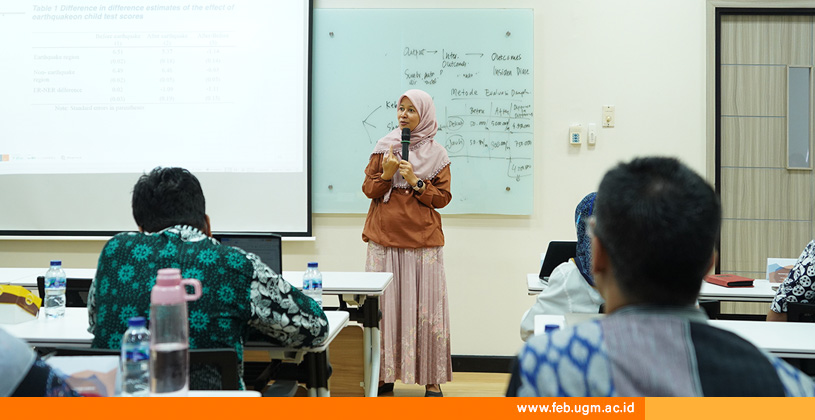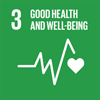Get to Know Micdash More Closely, the Hub of Microeconomics Studies of FEB UGM
- Details
- Written by Kurnia
- Category: News
- Hits: 400

When you hear the name Micdash, what comes to mind? This name is undoubtedly familiar to the academic community of FEB UGM. Most people will immediately think of studies, workshops, and dissemination related to microeconomics.
Micdash is an abbreviation of the Center for Microeconomics Research and Dashboard or the Microeconomics Dashboard Study Field. This study field was established in 2022 under the auspices of the Laboratory of the Department of Economics, FEB UGM, with the scope of microeconomics and applied microeconometrics studies.
Coordinator of Micdash Studies Qisha Quarina, S.E., M.Sc., Ph.D., highlighted the impactful initiatives and programs of Micdash Studies. These endeavors aim to advance research and disseminate knowledge in the field of microeconomics, making a significant contribution to national development through education, research, and community service.
"Micdash's work program focuses on skills development in the form of increasing capacity and competence for students, research, data processing, and microeconomic analysis methods, as well as community service activities that aim to provide a space and forum for discussion, collaboration, and cooperation related to microeconomic issues, "he explained on Friday (17/5).
Qisha said three flagship programs are summarized in research, education, and community service activities. In the area of research, Micdash has study programs related to various microeconomic issues such as education economics, health economics, employment economics, population economics, sports economics, experimental economics, crime economics, and gender economics.
Recent studies include those on workers' mental health and social security for informal workers in Indonesia, sports economics, and the issue of polygamy. This study is published regularly every month. Another program is to review journal articles that cover microeconomic topics and other issues. "So we also reviewed journal articles that dealt with microeconomic topics and other topics for which there are no courses at FEB UGM, such as sports economics, population economics, and others," she added.
Next, in the education sector, Micdash focuses on increasing the competency of FEB UGM students and the general public. This is done by organizing seminars and workshops such as introduction and training on microdata processing, such as IFLS, Susenas, and Sakernas, training of trainers (ToT), and coaching clinics.
In addition, Micdash also conducts several community service workshops for the general public. Recently, Micdash has provided training to increase the capacity of high school economics teachers in Yogyakarta Province and support for the Banjarharjo Chocolate Village.
Qisha said that in the future, through various existing work programs, Micdash is expected to increase its contribution to the academic world and community service. In particular, to improve the interest and quality of research in microeconomics and to increase the capacity and expertise relevant to the field for students, teachers, researchers, and the general public. This can be achieved through various collaborative efforts with partners and stakeholders, improving the quality of research, and increasing community involvement and innovation in disseminating knowledge.
"We hope that Micdash can become a field of study that not only contributes to the scientific development of microeconomics and applied microeconomics but also has a real social impact on society," he concluded.
Reportage: Kurnia Ekaptiningrum
Sustainable Development Goals









